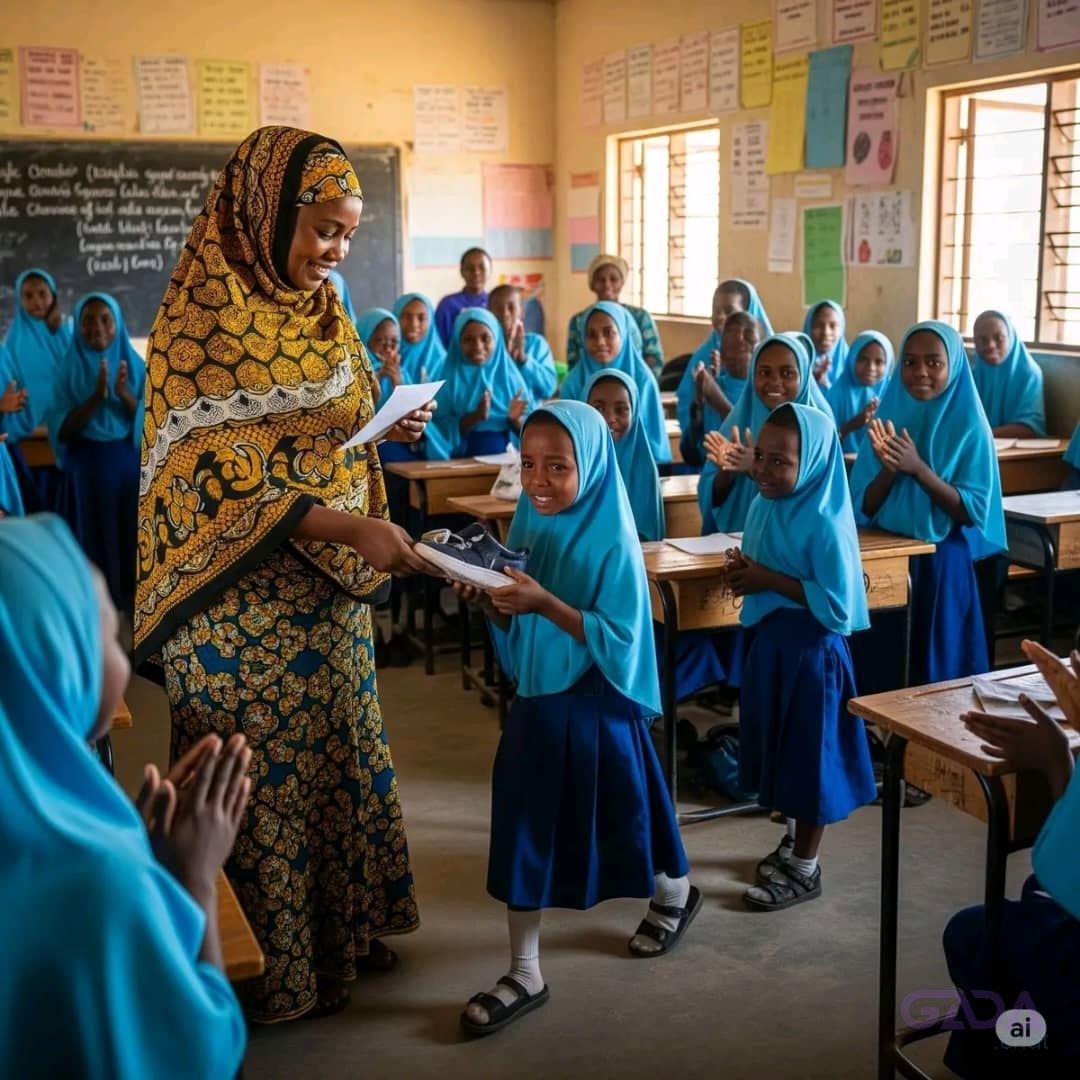A LOVE THAT CAN NOT BE SEPARATED
In the quiet heart of a Benue village, where red earth meets green fields, Ene and Oguche stood wrapped in each other’s arms beneath the shade of an old iroko tree. They wore matching A’nger cloth — vibrant red and black stripes whispering stories of their people’s heritage. The villagers said no two hearts had ever beat more perfectly in sync.
Ene was tall and light-skinned, her hair styled in the elegant Ngozi braids that crowned her gentle smile. Oguche was tall and dark, his dreadlocks falling around a face that lit up with a warm, unshakable joy whenever he looked at her. His muscular arms held her close, shielding her from a world that insisted they could not be together.
Because Ene’s parents had other plans. Her father, a proud farmer, dreamed of a wealthy suitor who could expand their land. Her mother spoke of men from town with cars and cash, men who would lift Ene into a life of comfort. But Ene knew that wealth without love was emptiness. She wanted only Oguche, whose kindness filled her days with laughter and hope.
Whispers of disapproval rose from the elders, and rumors spread through the village. Yet each evening, Ene and Oguche would meet at the iroko tree, their love blooming brighter than the setting sun. They spoke of a future where their children would dance in the fields, wearing the same red and black A’nger that bound their hearts.
No threats nor scorn could pry them apart. The bond they shared was stronger than poverty, deeper than tradition. When Ene’s father tried to forbid her from seeing Oguche, she stood firm:
“Father, you taught me to be brave. Now I will be brave for love.”
To be continue in our next episode
In the quiet heart of a Benue village, where red earth meets green fields, Ene and Oguche stood wrapped in each other’s arms beneath the shade of an old iroko tree. They wore matching A’nger cloth — vibrant red and black stripes whispering stories of their people’s heritage. The villagers said no two hearts had ever beat more perfectly in sync.
Ene was tall and light-skinned, her hair styled in the elegant Ngozi braids that crowned her gentle smile. Oguche was tall and dark, his dreadlocks falling around a face that lit up with a warm, unshakable joy whenever he looked at her. His muscular arms held her close, shielding her from a world that insisted they could not be together.
Because Ene’s parents had other plans. Her father, a proud farmer, dreamed of a wealthy suitor who could expand their land. Her mother spoke of men from town with cars and cash, men who would lift Ene into a life of comfort. But Ene knew that wealth without love was emptiness. She wanted only Oguche, whose kindness filled her days with laughter and hope.
Whispers of disapproval rose from the elders, and rumors spread through the village. Yet each evening, Ene and Oguche would meet at the iroko tree, their love blooming brighter than the setting sun. They spoke of a future where their children would dance in the fields, wearing the same red and black A’nger that bound their hearts.
No threats nor scorn could pry them apart. The bond they shared was stronger than poverty, deeper than tradition. When Ene’s father tried to forbid her from seeing Oguche, she stood firm:
“Father, you taught me to be brave. Now I will be brave for love.”
To be continue in our next episode
A LOVE THAT CAN NOT BE SEPARATED
In the quiet heart of a Benue village, where red earth meets green fields, Ene and Oguche stood wrapped in each other’s arms beneath the shade of an old iroko tree. They wore matching A’nger cloth — vibrant red and black stripes whispering stories of their people’s heritage. The villagers said no two hearts had ever beat more perfectly in sync.
Ene was tall and light-skinned, her hair styled in the elegant Ngozi braids that crowned her gentle smile. Oguche was tall and dark, his dreadlocks falling around a face that lit up with a warm, unshakable joy whenever he looked at her. His muscular arms held her close, shielding her from a world that insisted they could not be together.
Because Ene’s parents had other plans. Her father, a proud farmer, dreamed of a wealthy suitor who could expand their land. Her mother spoke of men from town with cars and cash, men who would lift Ene into a life of comfort. But Ene knew that wealth without love was emptiness. She wanted only Oguche, whose kindness filled her days with laughter and hope.
Whispers of disapproval rose from the elders, and rumors spread through the village. Yet each evening, Ene and Oguche would meet at the iroko tree, their love blooming brighter than the setting sun. They spoke of a future where their children would dance in the fields, wearing the same red and black A’nger that bound their hearts.
No threats nor scorn could pry them apart. The bond they shared was stronger than poverty, deeper than tradition. When Ene’s father tried to forbid her from seeing Oguche, she stood firm:
“Father, you taught me to be brave. Now I will be brave for love.”
To be continue in our next episode






